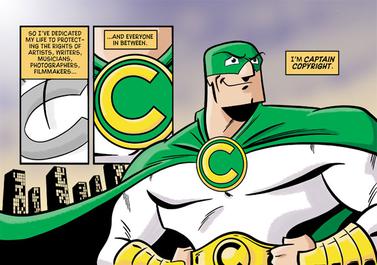

What IS protected?
What is NOT protected?
When does copyright start?
Copyright status is automatic upon creation of your original creative work in a fixed, tangible form (even scribbled on a napkin). Registration with the US Copyright Office is not necessary.
How long does copyright last?
That's not always a simple answer... using an online tool like the Digital Copyright Slider is helpful but here's a general rule:
Can I use a portion of a copyrighted work?
Yes, but there are limits. See fair use.
If there is no copyright symbol, does that mean it's free to use?
No! A copyright symbol is not required to maintain copyright. It is simply a reminder that a particular work is protected by copyright.
If I cite this source am I avoiding copyright infringement?
Not necessarily... Although it's the right thing to do and an important academic skill. You must determine if what you are using follows fair use. If it doesn't, you need to ask permission to use the work.
Copyright is a form of Legal protection automatically provided to the authors of the "original works of authorship," including literary, dramatic, musical, and artistic works. The owner of the original work has the exclusive right to:
